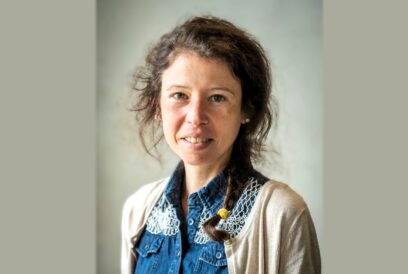

Sabine Verheyen
Sabine Verheyen
Sometimes systems require a crisis to transform. Adult education must be flexible and adapt quickly to changes and challenges facing us as society, writes Sabine Verheyen, Chair of committee on Culture and Education In European Parliament. The text is a column written for issue 2/2020 on Adult Education and the Unexpected.
Various EU initiatives and programmes support lifelong learning and education. However, in the current unpredictable times, it is important to develop a framework of adaptability in crisis moments.
While we are adjusting to the new normal in a short-term approach, we also need to consider how individuals will adapt to and navigate an ever-changing world over the coming decades. As far as the education and training sectors are concerned, organisations develop practical solutions for online adult learning and career advice and guidance.
Adult teaching/learning is not a one-size-fits-all exercise.
Flexibility and adaptability are key. Incentives to encourage early school leavers and illiterate adults to participate in adult education/training actions need to be different from those to motivate workers with high educational attainment and professional experience.
Adult teaching/learning is not a one-size-fits-all exercise – the learning population comprises people with very different characteristics and needs. The goal of adult education is to fit the needs of the students; it must be flexible and adapt quickly to changes and challenges facing us as society.
OVER THE PAST MONTHS, the Coronavirus (COVID-19) pandemic has presented unique challenges to all types and levels of learning. Systems are difficult to change; they prefer the status quo and often require a crisis to transform.
We are certainly watching this play out today.
As this is bound to go on for quite a while and the solutions now quickly put in place cannot work forever, we should take some time to reflect on the system transformation and explore the concept of “learning and training anywhere, anytime”, an idea central to the concept of lifelong learning.
This in turn requires examination of a range of issues. Namely, how technically prepared we are to support new ways of working in the face of disruptors like a pandemic; how quickly we can organise digital education and training and mobilise teachers and trainers to maintain services to learners – some countries took in a few weeks a technological leap of a decade.
For many, online and distance learning were not on the agenda some weeks ago, yet governments and stakeholders are now setting up virtual classrooms and collaboration platforms at incredible speed. Governments, social partners, education and training providers, NGOs and individuals need to discuss and share innovative practices in distance and online education and training.
Adult education is not, cannot be, limited to teaching new skills. Adult education is also the function of providing social networks to adults at risk of social isolation.
However, two-fifths of the adult population in the EU has low digital skills, so many would find it difficult to participate in learning activities that are transferred online. Competition within a household for digital tools, as several members try to study or work at the same time may be an additional barrier.
Giving resources to those who lack them is essential. Some adults might have the time and digital tools, but if they do not know how to manage self-directed e-learning, introductory courses would be useful.
Adult education is not, cannot be, limited to teaching new skills. Adult education is also the function of providing social networks to adults at risk of social isolation. Adult institutions that have shut down courses still employ their core staff to preserve at least minimum social contact by phone or using other means to reassure people on all kinds of matters.
AS ADULT EDUCATORS HAVE TO EXPLORE and adopt new online tools and techniques to maintain their training and learning activities, EPALE, the Electronic Platform for Adult Learning in Europe, adopted the role of keeping the adult learning community connected. Its strategy is to help professional adult educators to share experiences and expertise. On the one hand, blog posts in the form of expert interviews investigate digital learning opportunities and ways to overcome barriers.
These are complemented by a call to the whole community of adult educators to share their stories of problems and solutions related to e-learning, online teaching and virtual mobility. These stories will provide inspiration on the platform and through social media. EPALE also tapped into its rich content to produce a series of resource kits promoting tools and best practices in the delivery of adult education opportunities through distance learning.
It is important to recognise that the role of lifelong learning and education is deeply rooted in how we not only develop as a society, but also, in how we proceed in crisis since it is through education and lifelong learning that we can collectively make progress.
Author







